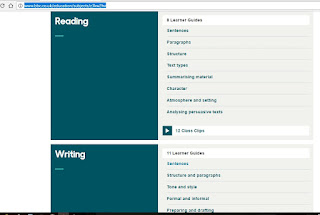Hello dear teachers.
Today I prepared a list of useful links where you will find free resources to use in your PET lessons.
If you can recommend any other, please send it so we can include it here.
Let's get going with the links:
flo-joe
In this website you will find some Practice tests (not the listening part), grammar exercises and activities related to vocabulary topics.
This is a pdf file with all the terms your students will need to manage when sitting for PET.
This is a collaborative website where teachers upload their worksheets and share them with their fellow teachers. It requires registering but it is free.
Listening sample exercises to use in class. It requires wifi and speakers of course.
Recommended online worksheets to solve in class with a smartboard.
Enjoy!
@esl4freeblog
x












